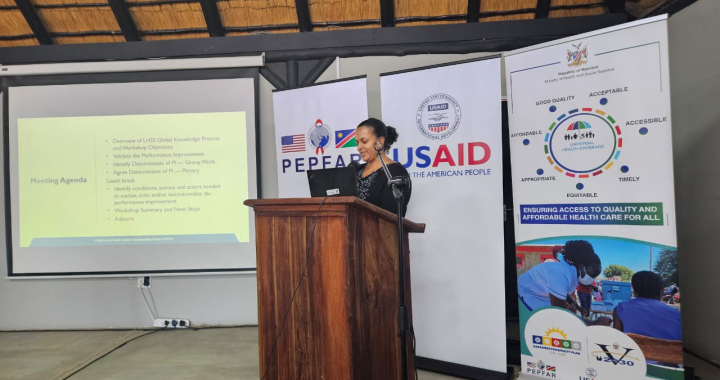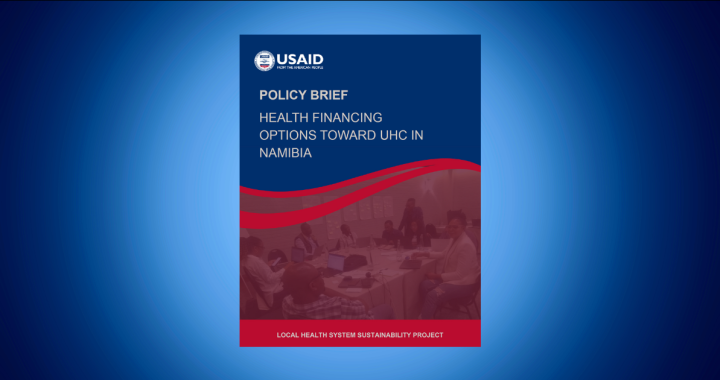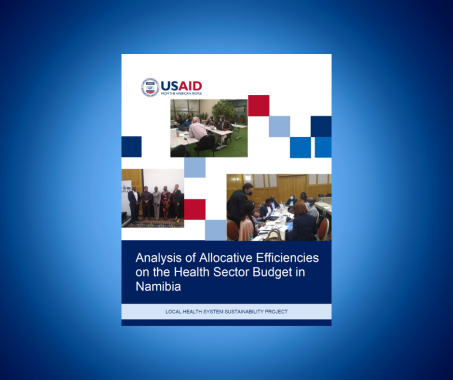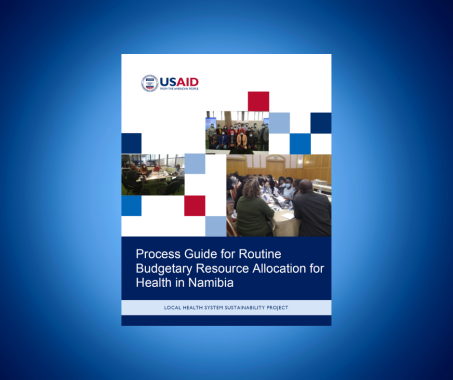Since gaining its independence in 1990, Namibia has made notable progress in its health system. However, despite these signs of progress and relatively high levels of health spending, Namibia faces challenges in its ability to sustainably and efficiently finance a health system that advances Universal Health Coverage (UHC).
Approach
LHSS is partnering with the Government of the Republic of Namibia and non-governmental entities to advance long-term sustainability planning. Through close collaboration with stakeholders, LHSS activities focus on the journey towards UHC, health financing, and private sector engagement. Specifically, LHSS is working to -
- Support the Ministry of Health and Social Services (MoHSS) to operationalize a high-level UHC plan by re-engaging UHC working groups and strengthening the MoHSS’s capacity to engage with multi-sectoral stakeholders on health financing reform
- Strengthen MoHSS capacity to use evidence-based financing processes by supporting the development of an essential service package, costing the essential package (including HIV services), and advancing efficient and effective resource allocation processes
- Improve private sector engagement leading to increased access to care and strengthened stewardship by the Government of Namibia
By strengthening Namibia’s health financing system, all Namibians, including people living with or experiencing HIV, pregnant women and children, and those living in poverty, can receive accessible, affordable, and high-quality essential health services.
Progress Highlights
- In collaboration with the Ministry of Health and Social Services (MoHSS), LHSS facilitated UHC consultations with key stakeholders, including MoHSS directorates, other Ministries, parliamentarians, private sector, academia, civil society, and development partners, resulting in the development of a comprehensive health financing policy brief, draft UHC policy framework, a list of prioritized services for possible inclusion in the EHSP and the Cabinet approved Social Contracting policy. Namibia's UHC policy framework was presented to key stakeholders at a UHC technical meeting in August 2023. Following further validation processes, the policy framework will be presented to secure Cabinet approval in FY2024.
- With LHSS’s support, the Ministry of Health and Social Services, through its Directorate of Special Programs, secured the Namibian Cabinet’s approval of the social contracting policy (Decision No 4th /4.4.23/002). This marks a pivotal moment for the sustainability of Namibia’s HIV response, allowing the Ministry to contract civil society organizations to provide health and HIV services. Historically, these services have typically been provided at community levels and are mostly dependent on donor funding.
- With the Activity's support, the Ministry's Primary Health Care Directorate organized a series of workshops to prioritize health services for inclusion in the Essential Health Services Package (EHSP). The EHSP will define the health services that are available to Namibians at different levels of care, ensuring that services are responsive to the health needs of the population, especially vulnerable populations.
- In 2023. the Global Fund’s Technical Review Panel approved Namibia’s grant application for HIV/AIDS, Tuberculosis, and Malaria, paving the way for the grant to be awarded. This accomplishment is attributed in part to the technical support provided by LHSS to the Ministry's Global Fund Program Management Unit.










